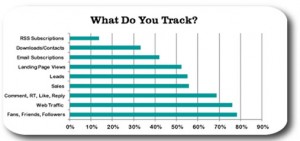— June 17, 2018

In lieu of the recent Facebook/Mark Zuckerberg testimony, we decided to do some research on how this is affecting the social media we use daily. Many Americans find that social networks, such as Facebook, Twitter, and Instagram, have become somewhat apart of their daily routine. Since 2005 with the spread of social media, the percentage of American use has gone from 5% to 69%. During that time, it developed from, and remains, a way for people to stay in contact with friends and family as well as significant others. The growth continued to become a way for people to get involved in civic and political activities, launch and grow protests, obtain and share health and science information, perform job-related activities, and get the news. A one-stop shop for information and communication!
Seems great, right? You can stay in constant communication with the important people in your life, read all the breaking news in an instant, follow your favorite celebrities, brands, and organizations while keeping up to date on every trend. Not to mention see live footage of events, pictures, videos, and memes. With all this information floating through the media-sphere, it’s hard to not get caught up. How can you tell what’s real and what’s fake? What pictures are real or Photoshopped? Did people say what it says they did? One thing is for sure, you can never believe all that you see or read on the internet. It seems that even some of the “most popular” and protected sites have information leaks and false information floating around. Bringing it back to Facebook, the recent identification of breaches in private information have spurred many questions in the use and rights people have regarding their private info.
European Union Calls for Reform
Since the news of this went public, it acted as a catalyst for private policy reform, affecting much more than Facebook. In the EU (European Union), effective on May 25th, 2018, they released a seven-point proposal from the Organisation for Economic Co-operation and Development. The seven points state:
- Subjects should be given notice of their data being collected
- They should be aware of who is collecting their data
- Their data should be kept safe once collected
- It should not be shared with third parties without consent
- Subjects should have access to third data and the right to edit to ensure its accuracy
- Data collected should only be used for stated purposes
- Subjects should be able to hold data collectors accountable for adhering to all points
Global and Domestic Implications
A recent study done in America depicts that 80% of American users are on social media every day; however, 96% do not trust social networks to protect their information. Because social media sites are mostly global, the reformation of the EU is affecting social media everywhere. It’s the government’s way to make things right with millions of users and to gain back trust.
While that may take some time, as there is really no way to know what is going on within these companies, networks such as Twitter are looking to be open and improve the clarity of privacy and give their users control. Twitter explains that it collects data on you to better personalize your timeline with tweets it thinks you’ll like, people that you may want to follow, and see ads that are relevant to your interests. With its new policy, Twitter users can choose which, if any, kinds of personalization techniques it wants to use. Users also have the ability to request the information that is documented about them and can edit or request for deletion of such information.
What’s Next?
The U.S. government is looking into setting stronger policies on privacy as well as stronger regulation of social media companies. Mark Zuckerberg said himself, “I’m actually not sure we shouldn’t be regulated,” in an interview with CNN on March 21. “The question is, what is the right regulation?”
Clearly social media has such an impact on people’s lives today that it doesn’t seem to be going anywhere anytime soon. Here at ENX2, we are thankful for that! We are also welcome that smarter steps are being taken to protect our information and that of our clients as well to help them kill the social media game. Things like stopping ads from putting out false or discriminatory information, and making it clear how our information is being handled, are just two ways the reform is making waves.
As the conversation continues and resolves, hopefully, we will all have the safety and protection we deserve whether we are posting our latest blogs, favoriting Thoughts of Dog tweets (check them out @dog_feelings), change to favoriting this year’s Titan of the Plaintiffs bar @sanfordheisler, delivering our clients breaking news, or keeping up-to-date on the latest memes. Happy scrolling! 
Check out current popular social networking site policies by clicking on the links below:
Digital & Social Articles on Business 2 Community
(138)
Report Post





